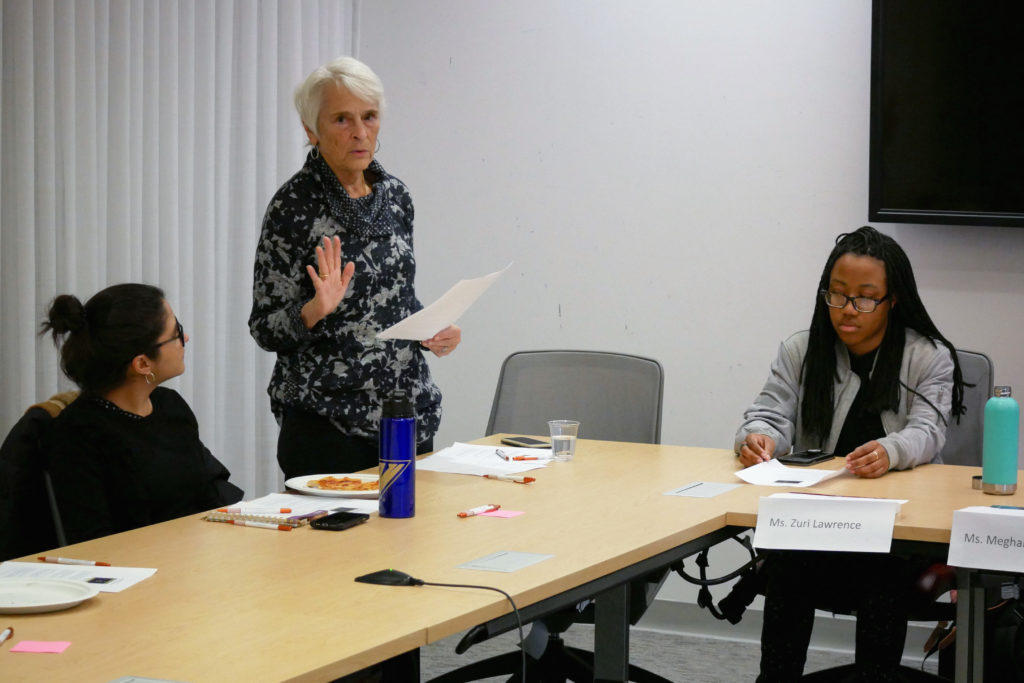More than a semester into a mentorship program for female engineering students, participants said the program has provided guidance in building resumes, establishing professional relationships and preparing for job interviews.
Officials from the School of Engineering and Applied Science’s Center for Women in Engineering said they launched the mentorship program last July to connect students with alumnae who can share career advice. Mentors said they have been able to learn from their students about how to adapt to working in a virtual environment, and mentees said they have benefited from the advice they received about working in a male-dominated field and preparing for jobs and internships.
Rachelle Heller, the director of the center and a professor of computer science, said the mentorship program has attracted 13 pairs of mentors and mentees since its start in the summer.
She said mentors have noted that the training materials officials provided them were helpful as part of their general feedback. The program’s website includes resources like a mentoring toolkit, which features tips on active listening and starting “difficult conversations” for mentors.
Heller added that the officials leading the center are promoting the program through a “variety of channels” and are working to improve the program “as necessary.” She said officials will work to expand the program based on feedback they have received directly from the mentors and a survey distributed to mentees.
“Our students have responded well to the program, even with the current constraints of remote learning,” she said in an email.
Evalyn Maxwell, a sophomore majoring in civil engineering, said she joined the program to have a mentor to assist her in building her resume and preparing for interviews for potential internships and future jobs. She said her mentor’s experience in the workforce has given her “insight” into the experience of being a woman in STEM and what she could do to further her own career prospects.
“Even though I only meet once a month with my mentor, I think it’s for a good amount of time because it gives us enough time for any possible changes within my academics and current job applications,” Maxwell said.
She said even though participating in the mentorship program online can have drawbacks like “weird” internet connections, it has been convenient since she doesn’t have to worry about spending time commuting to meet her mentor.
Monica Uribe-Francisco, a senior majoring in systems engineering, said her mentor helped her with networking by passing along her resume to potential employers and introducing her to colleagues working in computer engineering.
“Some of the things I’ve been able to do with my mentor in this program is not only talk about full-time jobs and how to prepare for that but also what it is to be a woman in the field of engineering, especially as a woman of color in my case,” Uribe-Francisco said.
She said as a first-generation college student, she was looking for help with navigating “life after graduation,” so she wanted to take advantage of the opportunities that GW offers while she is still in school.
“In the future, I would like to see this be something we possibly do from now on because I’ve really enjoyed it, and I think other girls not only in my situation but girls in STEM in general could benefit a lot from this program for their career goals and other educational or professional goals they might have,” Uribe-Francisco said.
Claire Silverstein, a visiting civil engineering assistant professor and three-time SEAS alumna in 2013, 2015 and 2019, said her mentee has had a positive experience with the program so far and now has access to a professional network that she can build on while fostering relationships at GW and beyond.
“If you have had a good experience as a mentee, hopefully one day you will mentor other people,” she said. “I think just having it full circle, having that support system as you go through schooling and as you enter your career is really important.”
Silverstein said the experience she had with mentors when she was a student at GW helped her pursue paths like graduate school and was also an outlet for her to discuss frustrations and receive advice. She said her knowledge of the “inner-workings” of higher education as a student and part-time faculty member gives her a “unique” perspective when giving her mentee advice or bouncing ideas around for possible careers.
“I hope more people take advantage and participate as mentors and as mentees because again more support can never hurt,” Silverstein said.
Tanya Ford, a SEAS alumna and mentor, said it’s “especially important” to provide mentorship opportunities for women in STEM because of their underrepresentation in the field. In recent years, women made up less than 25 percent of jobs in STEM fields, according to the U.S. Department of Commerce.
“It’s critically important that not only we begin creating programs such as this one but that we also work on ways to sustain them,” she said.
Ford said participating in the program virtually has allowed her and her mentee to be flexible in setting times to meet with each other. But she said she has faced setbacks since she can’t take her mentees to physical locations if they are interested in learning more about a specific work site.
She said during her time as a mentor she has been able to learn from her mentee’s “willingness to be adaptable” with her studies during the COVID-19 pandemic.
“Not only have I been able to deposit nuggets and give her words of wisdom and best practices but she’s also helped too in terms of being adaptable, flexible and open-minded when it comes to limitations,” she said. “It’s been a rewarding and a great experience for not just her but for myself as well.”








